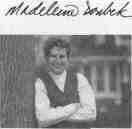
How did the gambling
deal gel done this spring?
by Madeleine Doubek

|
How did the gambling
deal gel done this spring? |
Not long after investors in Illinois' floating casinos began raking in profits, scores of others were clamoring for a piece of the action.
Year after year, would-be casino owners sought expansion of the state's 10 gambling licenses. Year after year, their efforts failed. Even attempts at a deal by clout-connected Rosemont Mayor Don Stephens and Arlington International Racecourse owner Richard Duchossois fell short, in no small part because legislators recognized many voters don't want more gambling. Many observers didn't give good odds on a gambling package passing this year, either.
As time ran out on the legislative session, their predictions seemed prescient. The results of a Daily Herald survey of all but three of the state's 177 legislators offered little hope to those angling for a gambling deal. With 60 votes needed for passage, in mid-May the survey showed only 21 representatives favored or leaned toward gambling revisions, while more than a majority (66) said they were opposed. With 30 votes needed in the Senate, 14 favored or leaned toward changes, while 26 said they were opposed.
The controversial plan allows an unused gambling license to move into Cook County (most likely to Rosemont), cuts horse racing taxes, directs some of the new casino's profits to the horse racing industry, including Arlington International Racecourse, and allows all of the state's casinos to remain docked.
Year after year, would-be casino owners sought changes in Illinois' gambling law. Year after year, their efforts failed.
Of course, this first rewrite of the 1990 gambling law that authorized state-regulated casinos did pass. How did it happen? It took unprecedented cooperative lobbying by legislative leaders, Stephens, casino owners and a nearly unified horse racing industry. It took a creative strategy and a different tone in Springfield set by George Ryan, a governor who, despite campaign pledges not to expand gambling, sent strong signals he'd likely sign the package if it got to his desk.
The media may have played a role as well. One legislator says Chicago Tribune editorials arguing that moving a license is not expansion gave them some political cover. And horse racing advocates say the Daily Herald survey sounded an alarm for supporters.
While many legislators said they opposed the bill, there were signs persuasion could turn the tide. The survey showed majorities in both chambers favored helping a struggling racing industry.
Further, many of those who opposed the package or refused to commit to it when surveyed by the Herald knew they might be able to cut a deal for a pet project or two by holding back support. State Sen. Donne Trotter, a Chicago Democrat, gave voice to what many legislators may have been thinking: "If you want my vote, will there be something for my district?"
Trotter and Senate Democratic Leader Emil Jones of Chicago got an agreement for spending $30 million over the next five years on economic development in Chicago's struggling South Side and the city's south suburbs. And last-minute negotiations resulted in a provision guaranteeing 16 percent minority ownership in the Cook County boat. Stephens won four more votes from North Side Chicago Democrats with a promise to help lobby in the House this fall for gay civil rights legislation.
But the savvy Rosemont mayor also strengthened his hand — and undercut arguments that Rosemont isn't a needy river town — by agreeing to split local tax proceeds with 70 Chicago area municipalities. "That was a masterful stroke of legislative genius," says state Sen. Kirk Dillard, a Hinsdale Republican. Municipal officials in Dillard's district, though miles from Rosemont, asked him to support the package. He voted for the bill but had leaned against it because he opposes dockside gambling.
In the wake of the legislative session, gambling opponents vowed to seek retribution at the polls. One who may suffer is state Sen. Daniel Cronin, an Elmhurst Republican, who says he voted for the plan because he represents a large chunk of the township that encompasses Rosemont, as well as 11 communities that could split proceeds with Rosemont. Cronin, who is eyeing a re-election bid next year, says he's angered some constituents. "There are some people who think gambling is immoral and they are highly motivated," Cronin says. "Try to talk about the merits of gambling. It's not easy."
Madeleine Doubek is assistant metro editor/projects and politics for the Daily Herald, a suburban metro newspaper.
Illinois Issues July/August 1999 / 41